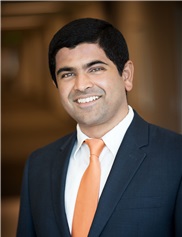Grants Funded
ASPS/PSF leadership is committed to continuing to provide high levels of investigator-initiated research support to ensure that plastic surgeons have the needed research resources to be pioneers and innovators in advancing the practice of medicine.
Research Abstracts
Search The PSF database to have easy access to full-text grant abstracts from past PSF-funded research projects 2003 to present. All abstracts are the work of the Principal Investigators and were retrieved from their PSF grant applications. Several different filters may be applied to locate abstracts specific to a particular focus area or PSF funding mechanism.
Seeding Success: Encouraging Cross-Talk At The Vascular Frontline
Principal Investigator
Marc Soares MD
Marc Soares MD
Year
2012
2012
Institution
New York University School of Medicine
New York University School of Medicine
Funding Mechanism
Pilot Research Grant
Pilot Research Grant
Focus Area
Composite Tissue Allotransplantation, Tissue Engineering
Composite Tissue Allotransplantation, Tissue Engineering
Abstract
The endothelial barrier is the frontline defense of the vascular network; it is the backbone of a tightly regulated gateway that controls nutrient/waste delivery, fluid balance, host defenses, and ultimately, tissue survival. Unfortunately, the failure of this gateway represents a common feature within many clinical challenges of plastic surgery, including chronic wounds, tissue edema, ischemia-reperfusion injury, flap failure, and even allograft rejection. Currently, there are few strategies to improve endothelial integrity; treatment focuses solely on combating the overarching pathology. Preliminary data by our lab suggest that mesenchymal stem cells (MSCs) can protect the vascular network. We propose that MSC-seeded vasculature can effectively mitigate endothelial injury in in-vitro and in-vivo models of ischemia-reperfusion and immune-mediated rejection. We further intend to demonstrate that this vasculoprotective effect occurs through synergistic crosstalk between endothelial cells and MSCs. Strategies to protect the vasculature at the time of (or prior to) cytotoxic injury represents a paradigm shift in the use of MSCs in regenerative medicine, and has direct clinical applicability in reconstructive microsurgery, composite tissue allotransplantation, and tissue engineering.
The endothelial barrier is the frontline defense of the vascular network; it is the backbone of a tightly regulated gateway that controls nutrient/waste delivery, fluid balance, host defenses, and ultimately, tissue survival. Unfortunately, the failure of this gateway represents a common feature within many clinical challenges of plastic surgery, including chronic wounds, tissue edema, ischemia-reperfusion injury, flap failure, and even allograft rejection. Currently, there are few strategies to improve endothelial integrity; treatment focuses solely on combating the overarching pathology. Preliminary data by our lab suggest that mesenchymal stem cells (MSCs) can protect the vascular network. We propose that MSC-seeded vasculature can effectively mitigate endothelial injury in in-vitro and in-vivo models of ischemia-reperfusion and immune-mediated rejection. We further intend to demonstrate that this vasculoprotective effect occurs through synergistic crosstalk between endothelial cells and MSCs. Strategies to protect the vasculature at the time of (or prior to) cytotoxic injury represents a paradigm shift in the use of MSCs in regenerative medicine, and has direct clinical applicability in reconstructive microsurgery, composite tissue allotransplantation, and tissue engineering.
Biography
 Marc Soares, MD was born and raised in Santa Barbara, CA. He received his undergraduate degrees from MIT in chemical engineering and biology, followed by a medical degree from Cornell University. Dr. Soares is currently in the middle of his plastic surgery training at the Institute of Reconstructive Plastic Surgery at the New York University Medical Center, where he is electively pursuing a two-year, post-doctoral research fellowship. His past and present research interests include bioassay design, stem-cell biology, and applying tissue-engineering approaches to clinical problems. Under the mentorship of Drs. Daniel Ceradini, MD and Pierre Saadeh, MD, he is exploring novel ways to use mesenchymal stem cells to support vascular function in the setting of hypoxia and allotransplantation.
Marc Soares, MD was born and raised in Santa Barbara, CA. He received his undergraduate degrees from MIT in chemical engineering and biology, followed by a medical degree from Cornell University. Dr. Soares is currently in the middle of his plastic surgery training at the Institute of Reconstructive Plastic Surgery at the New York University Medical Center, where he is electively pursuing a two-year, post-doctoral research fellowship. His past and present research interests include bioassay design, stem-cell biology, and applying tissue-engineering approaches to clinical problems. Under the mentorship of Drs. Daniel Ceradini, MD and Pierre Saadeh, MD, he is exploring novel ways to use mesenchymal stem cells to support vascular function in the setting of hypoxia and allotransplantation.
 Marc Soares, MD was born and raised in Santa Barbara, CA. He received his undergraduate degrees from MIT in chemical engineering and biology, followed by a medical degree from Cornell University. Dr. Soares is currently in the middle of his plastic surgery training at the Institute of Reconstructive Plastic Surgery at the New York University Medical Center, where he is electively pursuing a two-year, post-doctoral research fellowship. His past and present research interests include bioassay design, stem-cell biology, and applying tissue-engineering approaches to clinical problems. Under the mentorship of Drs. Daniel Ceradini, MD and Pierre Saadeh, MD, he is exploring novel ways to use mesenchymal stem cells to support vascular function in the setting of hypoxia and allotransplantation.
Marc Soares, MD was born and raised in Santa Barbara, CA. He received his undergraduate degrees from MIT in chemical engineering and biology, followed by a medical degree from Cornell University. Dr. Soares is currently in the middle of his plastic surgery training at the Institute of Reconstructive Plastic Surgery at the New York University Medical Center, where he is electively pursuing a two-year, post-doctoral research fellowship. His past and present research interests include bioassay design, stem-cell biology, and applying tissue-engineering approaches to clinical problems. Under the mentorship of Drs. Daniel Ceradini, MD and Pierre Saadeh, MD, he is exploring novel ways to use mesenchymal stem cells to support vascular function in the setting of hypoxia and allotransplantation.